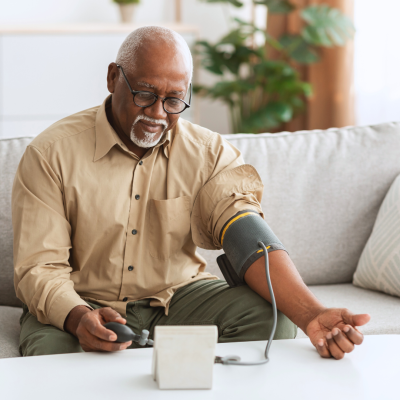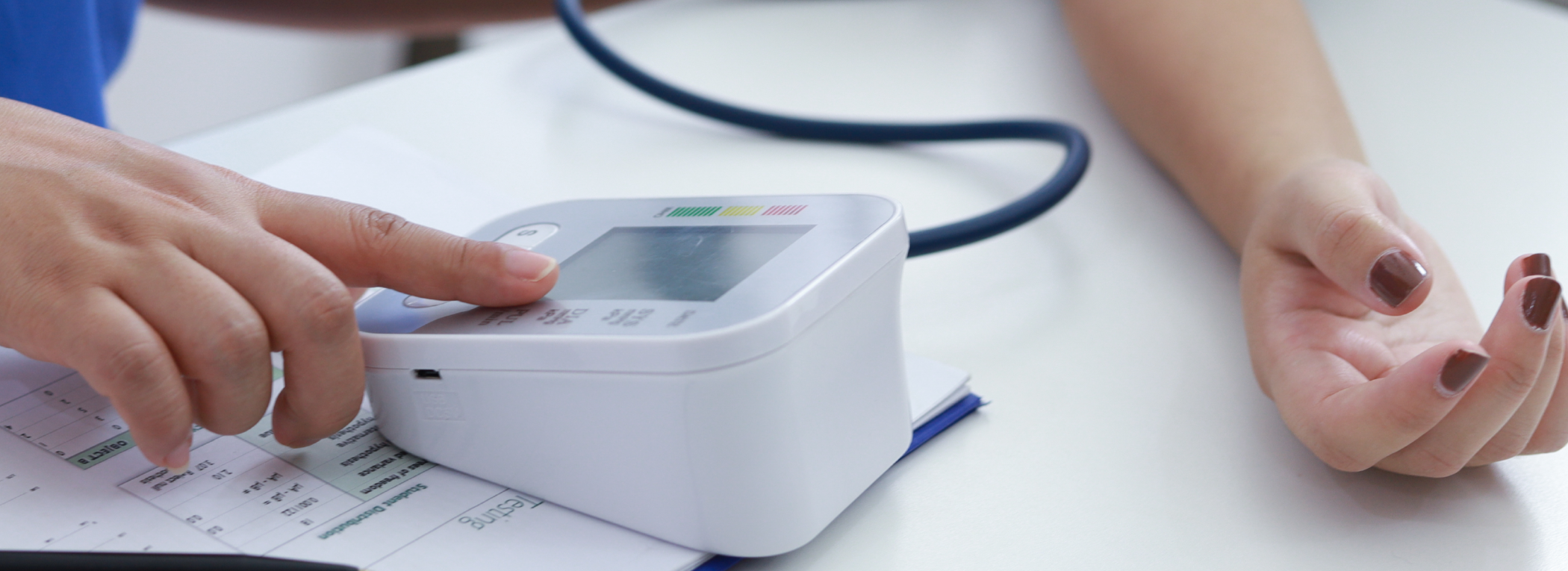High blood pressure is one of the biggest causes of global death, causing strokes, heart attacks and other complications.
High blood pressure is a serious condition. If left untreated it can raise your risk of heart attack, stroke and kidney disease. In Birmingham and Solihull, about 202,025 people have high blood pressure. Many more may not know they have it, as it often shows no symptoms.

Where can I have my blood pressure checked?
If you are aged 40 or over and don’t already have a diagnosis of high blood pressure you can visit your local community pharmacy for a blood pressure check. Visit the NHS website to find a pharmacy near you.
if you are aged 40 to 74, you might be eligible for a free NHS Health Check, which incudes a blood pressure check. Visit the NHS website to learn more.
Learn more about blood pressure checks at your local pharmacy
Frequently asked questions
Watch a short video from the British Heart Foundation, which talks you through the basics of taking your blood pressure yourself. It is really simple and can be done in the comfort of your own home.
Blood pressure is measured in millimetres of mercury (mmHg) and is given as two numbers:
- The top number is known as the systolic pressure. This is when your heart pumps.
- The bottom number is called the diastolic pressure. This is when your heart rests between beats.
Your blood pressure reading can tell you how healthy your blood pressure is. A normal blood pressure is considered to be between 90/60mmHg and 120/80mmHg.
If your blood pressure gets too high, it's called high blood pressure, also known as hypertension.
This can strain your heart and increase your risk of suffering heart attacks and strokes.
You may feel dizzy, weak or faint. This happens because your heart isn't pumping enough blood to your brain.
Sometimes, there is no clear reason for high blood pressure. Here are some factors that can increase risk:
- Being overweight
- Drinking too much alcohol
- Eating too much salt
- Not exercising enough
- Family history
- Being stressed for long periods of time
- Conditions like kidney disease and diabetes
- Getting older
Small lifestyle changes can help keep your blood pressure healthy:
- Eat more fruits and vegetables
- Use less salt in your food
- Drink less alcohol
- Lose weight if needed
- Be more active
- Quit smoking
You should check your blood pressure at least once a year. If you feel dizzy, weak or have headaches, please contact your GP for advice
If you have high or low blood pressure, your GP may want you to check it more frequently.
You might prefer to check your blood pressure at home. Visit the British and Irish Hypertension Society website for information about blood pressure monitors.
If you have made lifestyle changes and your blood pressure is still high, you may be prescribed medication to help you lower it.
Talk to your GP, they will monitor your blood pressure and discuss the best medication for you.

